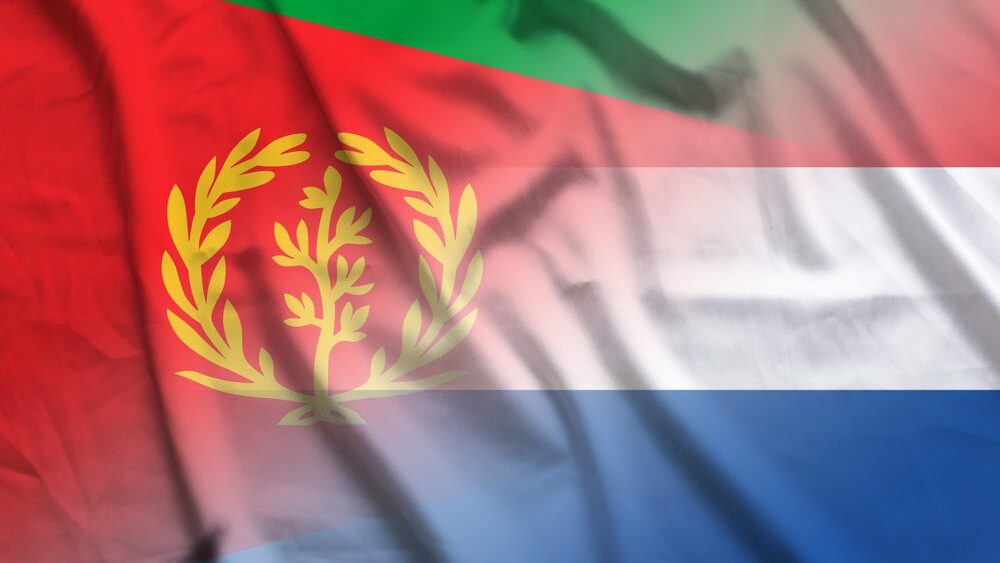
Dutch streets resembled a war zone on Saturday night, as rival Eritrean groups fought, injuring eight police officers and causing tens of thousands of euros of property damage in the process.
The large-scale riot arose in The Hague, the Netherlands’ political center, where hundreds of Eritreans roamed the streets for hours, setting fire to police cars, passenger cars, and a tour bus. Police eventually deployed tear gas to put a stop to the pandemonium and made 13 arrests.
The Hague the day after. burnt cars, broken windows, boarded up windows, a picture of a post-war situation in the center of Europe. This is how the influx of immigrants from Africa ends. The EU led by Germany, which supports migration policy, is to blame for this.#DenHaag… pic.twitter.com/yzzkwiZJMw
— Kris H (@Kris_H86) February 18, 2024
According to law enforcement officials, the two sides were supporters and opponents of the current Eritrean government, which since 1993 has been ruled by the autocratic President Isaias Afewerki and his People’s Front for Democracy and Justice (PFDJ), the only party allowed.
On Saturday, pro-government Eritreans held a meeting at the ‘Opera’ event hall, which was soon descended upon by their political rivals. Before long, rioting was underway.
Initially, rioters roamed the streets with near impunity. Responding to the unrest, officers arrived in the neighborhood to restore order, conducting baton charges in an effort to keep the two groups apart.
In turn, rioters employed bike locks and baseball bats as weapons, while also throwing rocks and shooting off fireworks at the police. At least four police officers were injured. Fire trucks and firefighters were also attacked.
Firefighters were initially unable to extinguish the fires due to safety concerns. By about 8:15 p.m. efforts to put out the fires could begin in earnest. Around that time, some calm returned.
At 10:30 p.m., the pro-government Eritreans still inside the building were finally escorted out under police protection.
Press photographer Sebastiaan Barel captured this image of an alleged assailant, in what has since become an iconic shot of that day’s events:
Respect voor deze persfotograaf van regio15! Niet rennen maar fotograferen. Hopelijk is de fotograaf er niet al te slecht aan toe. Kunnen we hier nog een update van krijgen? @regio15 #DenHaag #rellen pic.twitter.com/4Uj5zcNXRB
— Rick (@Ricksfotovideo) February 17, 2024
Following that evening’s events, Mayor Jan van Zanen concluded that he knew of possible tensions within the Eritrean community but had failed to deploy enough police beforehand as a deterrent to would-be troublemakers.
Geert Wilders, leader of the anti-mass immigration Party for Freedom (PVV) hit out hard:
The Netherlands is really sick of this. Why is half the world allowed here to tear down our country, fight their feuds, throw stones at police officers and set their cars on fire? I want to become the prime minister who finally puts things in order.
Eritreans in The Hague. pic.twitter.com/RnbASFWSfE
— Geert Wilders (@geertwilderspvv) February 17, 2024
Some 27,000 Eritreans now live in the Netherlands. It is not the first time tensions flared between different groups from the East African country.
Last year in May, at a celebration of Eritrea’s independence, two groups of Eritreans attacked each other near an event hall in Rijswijk. In October 2022, another Eritrean party in Amstelveen devolved into anarchy, resulting in one policeman injured.
The problem is not a uniquely Dutch—or European one—either. During an Eritrean cultural festival in Germany last July, similar riots broke out, resulting in 28 injured police officers. That August, another such festival, this time in Sweden, turned violent, injuring 50 attendees, including police officers.
Across the Atlantic, on Saturday, the U.S. town of Charlotte in North Carolina had to arrest eight people during a 10-hour “protest and standoff” at another such Eritrean cultural event.
